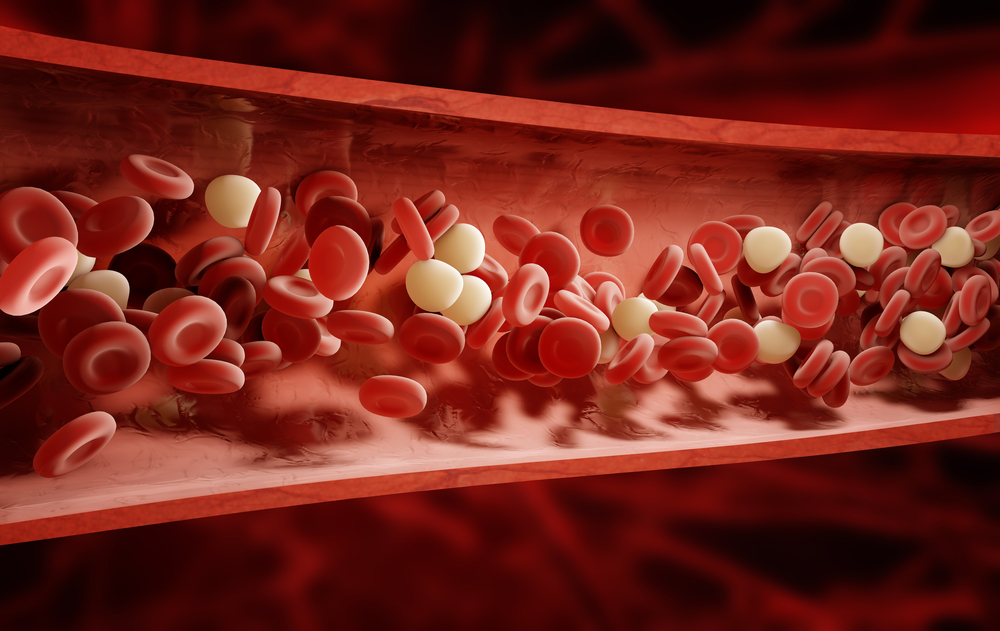Hemlibra Reduces Bleeds in Hemophilia A Patients Without Inhibitors, Phase 3 Trial Shows

Hemlibra (emicizumab) was able to prevent excessive bleeding in patients with severe hemophilia A without inhibitors, according to results from a Phase 3 trial.
Trial findings were published in the study, “Emicizumab Prophylaxis in Patients Who Have Hemophilia A without Inhibitors,” in The New England Journal of Medicine.
Hemophilia is a genetic blood disorder that affects the body’s ability to make blood clots to prevent excessive bleeding. In hemophilia A, this inability of the blood to clot is caused by the lack of a specific clotting protein, called factor VIII (FVIII), in the blood.
Current treatments for hemophilia A are based on providing the missing FVIII to patients prophylactically, or as a preventive measure, to avoid spontaneous bleeding episodes.
However, this kind of therapeutic approach poses two main challenges: First, FVIII is usually administered by an injection into the veins, which are sometimes hard to access, especially in children; and second, in some cases the body develops an immune response, known as inhibitors, against the artificial FVIII, rendering the treatment useless.
As a result, a new type of preventive therapy able to overcome these limitations was urgently needed.
Genentech‘s Hemlibra, administered by an injection under the skin, is a bispecific antibody with the ability to bind to two different targets simultaneously, clotting factors IX and X, mimicking the function of FVIII and promoting blood clotting. It is already approved for the treatment of hemophilia A in people with factor VIII inhibitors.
“Hemlibra is a prescription medicine used to prevent or reduce the frequency of bleeding episodes in adults and children with haemophilia A with factor VIII inhibitors,” Johnny Mahlangu, a professor and clinical hematologist at the University of the Witwatersrand in South Africa and lead author of the study, said in a press release.
The open-label, multicenter, global Phase 3 trial, called HAVEN (NCT02847637), was designed to assess the safety and effectiveness of Hemlibra administered under the skin as a preventive treatment in patients with severe hemophilia A without inhibitors.
The trial enrolled 152 hemophilia A patients who had been receiving either on-demand or preventive treatment with factor VIII.
Patients previously treated with on-demand factor VIII were randomly assigned to one of three groups. Group A received Hemlibra through a weekly injection under the skin at a dose of 3 mg/kg for four weeks, followed by 1.5 mg/kg until the end of study. Group B received Hemlibra at a weekly dose of 3 mg/kg for four weeks, followed by 3 mg/kg every two weeks until the end of study. Group C, the control group, received no prophylactic treatment.
“Subcutaneously administered emicizumab [Hemlibra] reduced the bleed rate by 96% in those getting weekly emicizumab [group A] and by 97% in those receiving fortnightly emicizumab [group B] when compared to those not receiving emicizumab [group C],” Mahlangu said.
In addition, 56% of patients in group A and 60% in group B did not experience any bleeding episodes while on Hemlibra, whereas all patients in group C experienced bleeding events over the course of the study.
A fourth group included patients who had received preventive treatment with factor VIII in a prior study. This group showed a 68% reduction in bleeds, compared with their previous prophylactic treatment.
The most common side effects observed were low-grade reactions in the area of injection. There were no major thrombotic events (formation of blood clots that obstruct blood vessels) or body immune reactions attributed to Hemlibra administration.
These findings suggest that Hemlibra is a promising prophylactic therapeutic strategy for patients with severe hemophilia A without inhibitors that not only prevents excessive bleeding, but also surpasses the challenges posed by other types of FVIII replacement therapies.
“In the HAVEN 3 study, Hemlibra showed a significant and clinically meaningful reduction in bleeds in people with haemophilia A without factor VIII inhibitors, while offering flexible subcutaneous [under the skin] dosing options,” Mahlangu said.
The U.S. Food and Drug Administration granted breakthrough therapy designation and priority review to Hemlibra for people with hemophilia A without factor VIII inhibitors based on data from the HAVEN 3 study. It is expected to make a decision on approval by Oct. 4.






